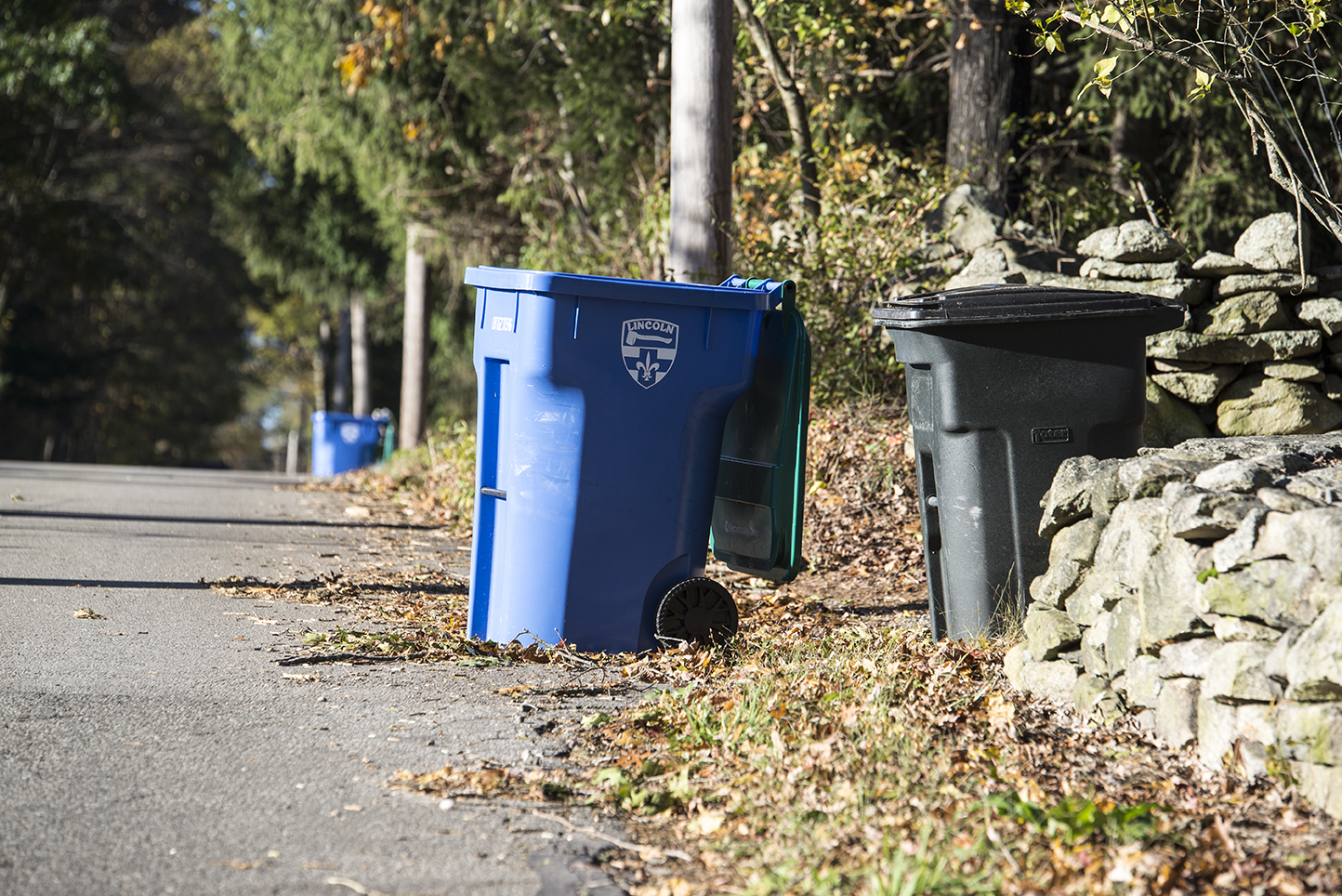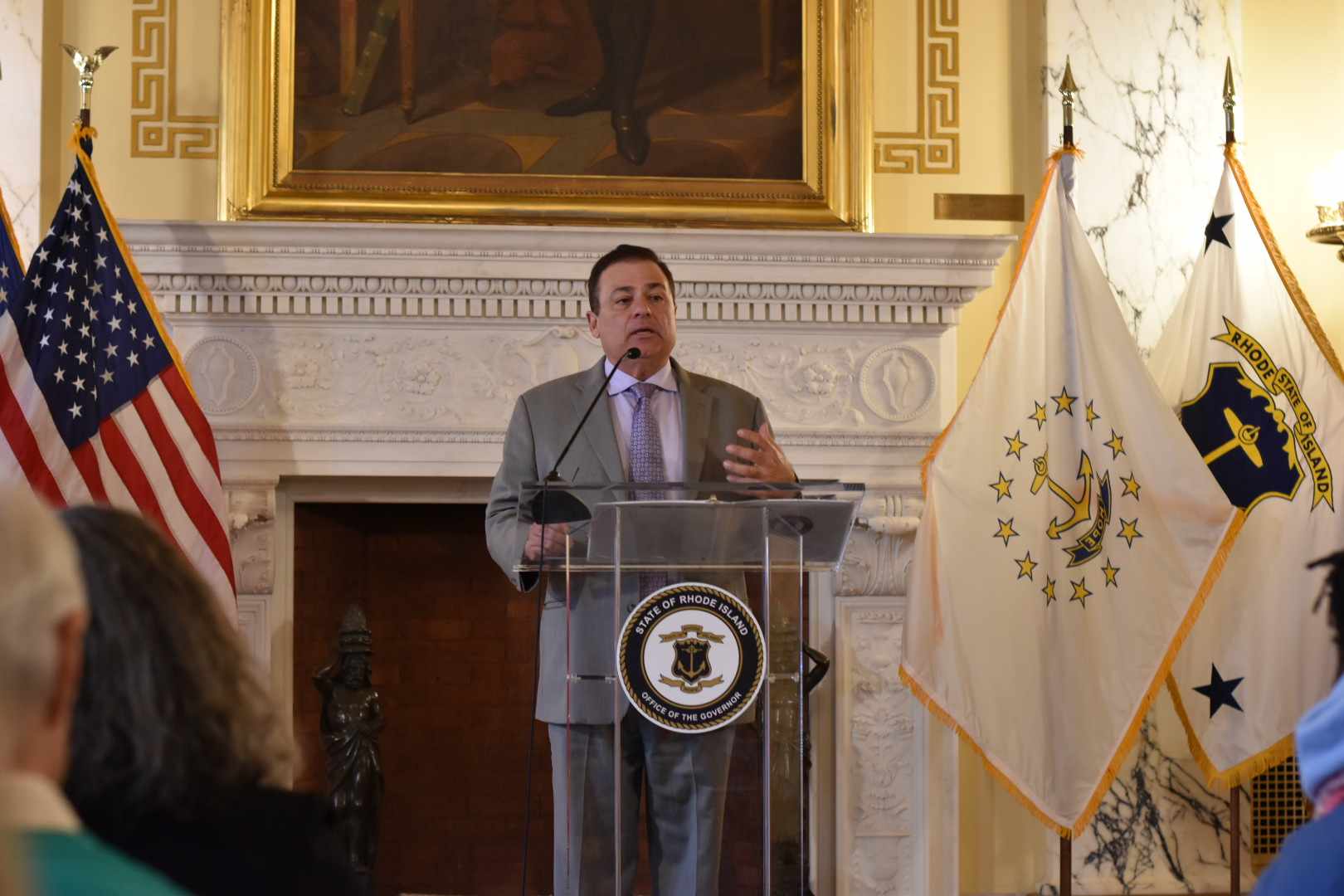‘Advanced Recycling’ Bill Draws Criticism From Environmental Advocates
Measure would exempt these incinerators from waste management regulations
May 2, 2022

PROVIDENCE — Plastics proponents are pushing pyrolysis, the process of transforming used plastic into a usable commodity, on Smith Hill this legislative session.
A bill (S2788) sponsored by Sen. Frank Lombardo, D-Johnston, would exempt so-called “advanced recycling” facilities from solid waste management regulations. Advocates argue the bill more appropriately regulates facilities as manufacturers, but environmental groups warn it would deregulate a highly pollutive industry.
Proponents say with advanced recycling, used plastics can be converted into new products, and could help create a circular economy for plastic in which it is reused instead of discarded.
“This is not recycling; it’s not an answer to our enormous plastics problem,” Conservation Law Foundation staff attorney Kevin Burdis said. “This is an energy-intensive process that involves bringing plastic to high temperatures to break them down into hydrocarbons and other toxic waste byproducts.”
Craig Cookson, a senior director of plastics sustainability at industry group American Chemistry Council (ACC), told members of the Senate Judiciary Committee the process results in lower greenhouse gas emissions.
“They heat plastics in an absence of oxygen, they keep heating them until they melt, they turn into gas vapors and are then cooled down into a liquid feedstock that becomes the feedstock for new plastics and chemicals again,” Cookson said.
The Earth has a plastics problem. Recycling plastic isn’t cost-effective, leading to more than 90% of plastics being landfilled or incinerated. Plastic production is expected to double by 2040, and it will continue to clog landfills and pollute oceans and communities.
Chemical companies have been pitching advanced recycling since 2018, when China banned the import of used plastics after its recyclers became overwhelmed. Claiming to be a forward-looking solution to the mushrooming plastics problem, groups like the ACC have been lobbying state governments to exempt advanced recycling facilities from solid waste regulations for years.
Eighteen states have passed similar deregulatory bills, up from eight in 2020. While the Environmental Protection Agency (EPA) lists 40 proposed facilities nationwide, only six are currently operational.
A 2021 investigation by Reuters showed that many advanced-recycling facilities face the same problems as traditional recyclers: collecting, sorting and cleaning plastic waste for use into new plastic products can’t compete with new plastic. Industry groups claim breakthroughs in technology are on the horizon, and it would be an injustice to quit now.
ACC lobbyist Joan Milus testified in support of the Rhode Island legislation, characterizing it as advancing the local economy.
“The concept of closing the door in Rhode Island to any advancements in technology as a taxpayer is baffling to me,” Milus said.
Public records show Milus’ lobbying company, JPM & Associates, collecting $40,000 from the ACC for lobbying this year.
Incinerating plastic — without or without oxygen — results in the release of toxic hydrocarbons such as dioxin, although proponents claim it’s a “closed system.”
Cookson said the only emissions are from the natural gas used to heat the plastic for melting.
“Ten percent are non-condensable gases that don’t turn to liquid. They scrub the gases and essentially what you have is like a propane and they use that as processed energy in the system,” he said.
The proposed bill brings to mind the recent MedRecycler saga. The Rhode Island Department of Environmental Management (DEM) last July denied the permit of MedRecycler Inc., a subsidiary of a New Jersey-based company that proposed building a pyrolysis facility for medical waste in a West Warwick office park. In a ruling signed by DEM acting director Terry Gray, the agency cited “insufficient detail” on the company’s application regarding its proposed use of untested technology, its lack of contingency plans with local first responders, and a lack of demonstrations of system efficacy and waste containment.
The controversial project had been in the works for two years, and would have been the largest medical waste pyrolysis facility of its kind. It spurred intense public outcry and plenty of misinformation.
Environmental watchdogs warned legislators such facilities increased reliance on fossil fuels.
“We can no longer use fossil fuels to power energy systems,” said Kai Salem, vice president of policy for the Environmental Council of Rhode Island. “Fossil fuel companies are investing in plastics and still have a lifeline for their industry in the continued production of plastics.”
Lombardo, sponsor of the Senate bill, noted the bill’s economic benefits.
“The legislation will put more than 100 construction workers to work for over a year,” he said. The Johnston senator also claimed the facility, when built, would have 30-70 “high-paying jobs.”
The bill was held for further study.
Categories
Join the Discussion
View CommentsRecent Comments
Leave a Reply
Your support keeps our reporters on the environmental beat.
Reader support is at the core of our nonprofit news model. Together, we can keep the environment in the headlines.
We use cookies to improve your experience and deliver personalized content. View Cookie Settings




We, the state of Rhode Island, have refused the permits needed for Med Recycler to use the pyrolysis process. We are also making strong efforts to stop PFAS chemicals. Now Sen. Lombardo is introducing a bill that would allow this pyrolysis method in the state by allowing a back door change from an incinerator to a manufacturing facility. This change has little to no public input or comments on how the proposal/facility will be permitted.
It will produce dioxins and other totally toxic and forever chemicals into our area’s land, waters, or atmosphere. Where is the consistency in this? Many questions remain in this proposal and the change to the manufacturing process is just making this easier for the chemical and plastic industries. There is little to no proof the “materials” this facility may produce have an economic market for their reuse. Will they landfill them too?
The last element in this proposal is the continued reliance on fossil fuels at a time we are releasing more CO2 while there are strong efforts to reduce and eliminate fossil fuels and the impact on our atmosphere. It commits us to decades of emissions and increased impacts on Climate Change Impacts.
This must not see the light of any committees never mind the light of day for our state and its citizens.
Exempting anything from environmental oversight is always a recipe for disaster.